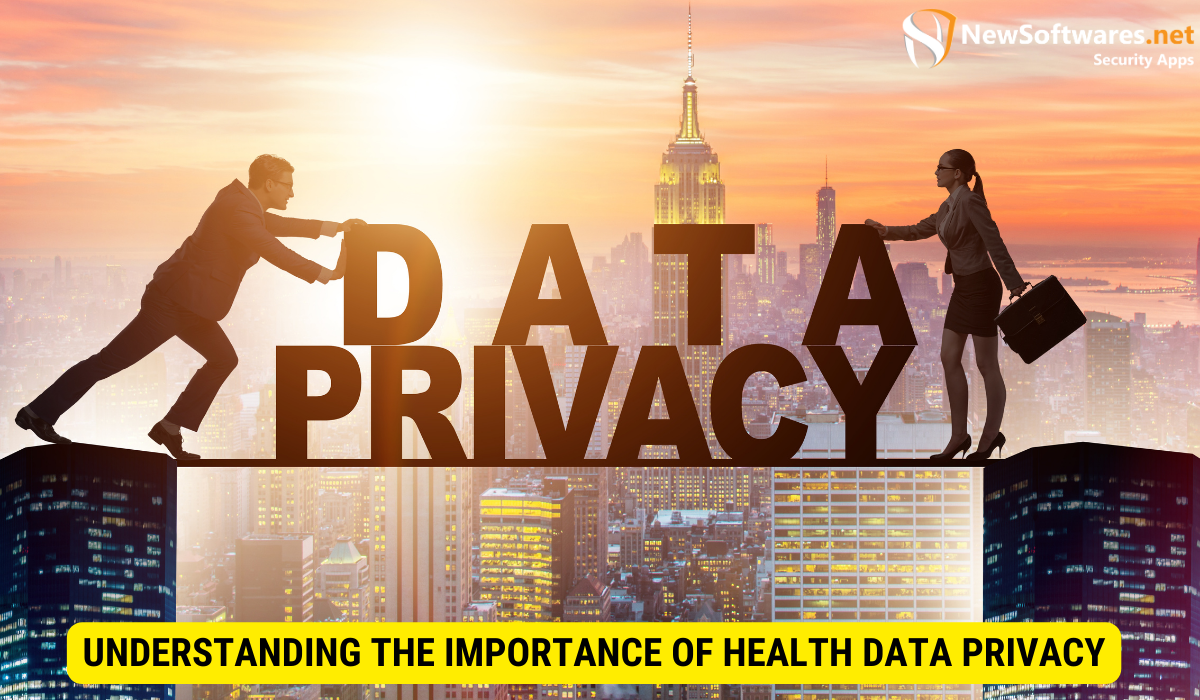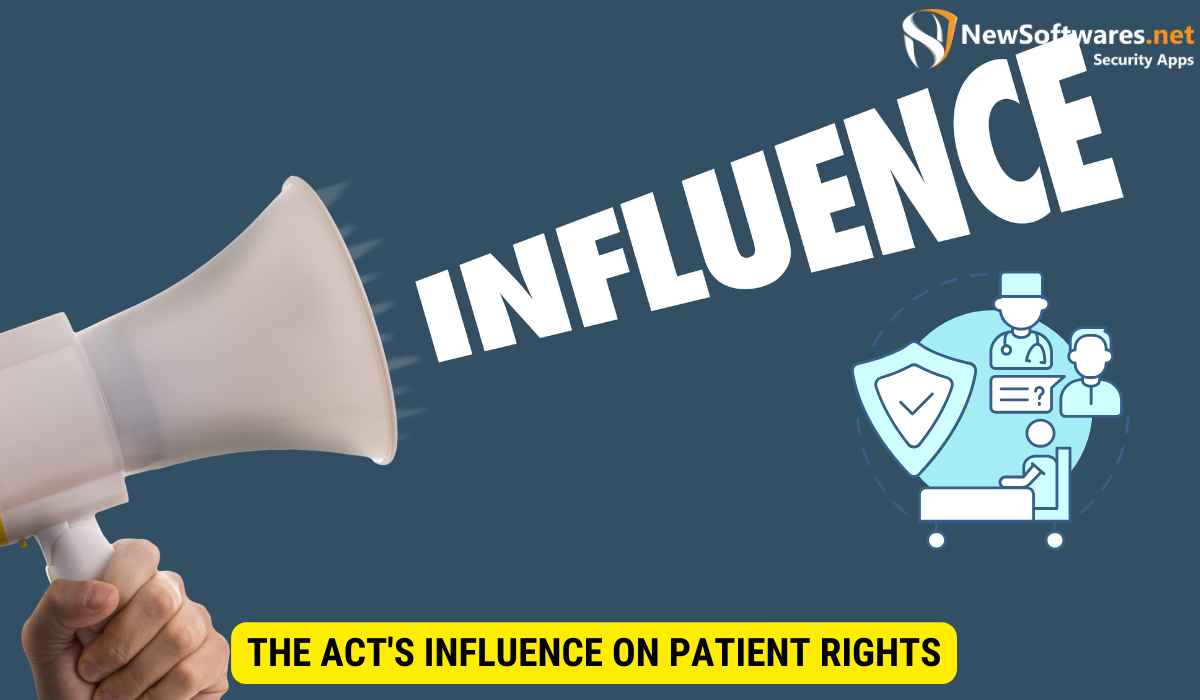The act of Congress that addresses the privacy and security of health data is the Health Insurance Portability and Accountability Act (HIPAA). HIPAA encompasses rules such as the Privacy and Security Rule, regulating the use, disclosure, and security of Protected Health Information (PHI). Healthcare providers must comply with HIPAA’s requirements to safeguard patient data.
In the rapidly advancing age of healthcare technology, health data privacy and security have become paramount. The increasing digitization and sharing of patient information have raised concerns about data breaches and unauthorized access. To address these concerns, an act of Congress has been executed to safeguard the privacy and security of health data. Let’s comprehensively understand the act’s significance and implications.
Understanding the Importance of Health Data Privacy

Health data plays a vital role in modern healthcare systems. It encompasses various information, including medical records, test results, treatment plans, and insurance details. The availability and integrity of this data are critical for ensuring efficient and effective healthcare delivery.
However, the sensitive nature of health data requires stringent privacy regulations to protect patients’ rights and prevent potential harm. Unauthorized access to this information may lead to identity theft, insurance fraud, and even compromised treatment outcomes.
Regarding health data, privacy and security are of utmost importance. The confidentiality and protection of personal health information are vital for building and maintaining trust in healthcare systems. Patients must feel confident that their data remains confidential and protected, allowing them to share comprehensive and accurate information with their healthcare providers. This, in turn, leads to better care outcomes and a more collaborative healthcare environment.
The Role of Health Data in Modern Healthcare
Health data is the foundation for evidence-based medicine, clinical research, and public health initiatives. It permits healthcare providers to make informed decisions about diagnoses, treatment plans, and preventive measures. Healthcare professionals can identify patterns, trends, and risk factors by analyzing health data, leading to more accurate diagnoses and tailored treatment plans.
Moreover, aggregated health data plays a crucial role in monitoring population health and assessing the impact of interventions. By analyzing large datasets, researchers and public health officials can identify disease trends, evaluate the effectiveness of public health campaigns, and allocate resources more efficiently.
Why is Privacy and Security Crucial for Health Data?
Privacy and security are essential to building and upholding trust in healthcare systems. Patients must feel confident that their personal health information remains confidential and protected. By safeguarding health data, individuals are more likely to share comprehensive and accurate information with their healthcare providers, leading to better care outcomes.
Moreover, preserving the privacy and security of health data helps prevent data breaches, which can have severe financial and reputational consequences for healthcare organizations. A single data breach can compromise the personal information of thousands or even millions of individuals, leading to potential identity theft and insurance fraud. This affects the individuals whose data is compromised and erodes trust in the healthcare organization responsible for safeguarding the data.
Healthcare institutions must establish robust security measures to safeguard health data against unauthorized access, theft, or tampering. These measures encompass the adoption of encryption protocols, the implementation of access controls, and regular security audits. Furthermore, healthcare practitioners must undergo training to ensure their comprehension of the significance of privacy and security and their adherence to best practices when managing health data.
In conclusion, health data privacy is crucial for maintaining trust, ensuring accurate diagnoses and treatment plans, and protecting individuals from potential harm. By upholding the highest privacy and security standards, healthcare organizations can foster a safe and collaborative healthcare environment where patients feel confident in sharing their health information and receiving the best possible care.
The Evolution of Health Data Legislation
Over the years, several legislative measures have been introduced to address health data privacy and security concerns. Early legislation focused on specific aspects, while subsequent efforts aimed to establish comprehensive frameworks for data protection.
Early Legislation for Health Data Protection
The early stages of health data legislation involved targeted measures to protect specific types of health information. Examples include the Privacy Act of 1974, which regulated federal agencies’ collection and use of personal information, and the Confidentiality of Alcohol and Drug Abuse Patient Records regulations.
The Shift Towards Comprehensive Health Data Security
Recognizing the need for a more comprehensive approach, Congress passed the Health Insurance Portability and Accountability Act (HIPAA) in 1996. HIPAA introduced regulations that govern the privacy, security, and exchange of health information.
Since its enactment, HIPAA has played a pivotal role in protecting health data. The act established national standards for electronic healthcare transactions, ensuring the secure exchange of information between healthcare organizations, insurers, and other stakeholders.
The Health Insurance Portability and Accountability Act (HIPAA)
HIPAA is a landmark legislation that sets forth rules and regulations for healthcare organizations and other entities that handle protected health information (PHI). This act talks about the privacy and security concerns connected with health data in the United States.
Overview of HIPAA
HIPAA consists of several rules defining health data privacy and security aspects. These rules include the Privacy Rule, the Security Rule, the Breach Notification Rule, the Enforcement Rule, and the Omnibus Rule.
HIPAA’s Privacy Rule
The Privacy Rule regulates the utilization and revelation of Protected Health Information (PHI) by entities under its purview, including healthcare providers, health plans, and healthcare clearinghouses. It provides patients with specific privileges, including accessing their health records and requesting revisions when needed.
Furthermore, the Privacy Rule mandates obtaining patient consent before utilizing or revealing their PHI and imposes constraints on the types of information that can be disseminated without explicit authorization.
HIPAA’s Security Rule
The Security Rule supplements the Privacy Rule by offering instructions for safeguarding and preserving electronic PHI’s security. It mandates that covered entities establish administrative, physical, and technical procedures to guarantee the confidentiality, integrity, and accessibility of healthcare information.
This rule mandates risk assessments, implementing safeguards to mitigate identified risks, ongoing workforce training, and regularly evaluating security measures to adapt to emerging threats.
The Impact of the Act on Healthcare Providers
HIPAA’s regulations have significant implications for healthcare providers responsible for ensuring compliance to protect patients’ privacy and security.
Compliance Requirements for Healthcare Providers
Healthcare providers must implement comprehensive administrative, physical, and technical safeguards to protect health data. These safeguards include policies and procedures for security management, workforce training, access controls, and incident response plans.
In addition, healthcare providers must perform routine risk assessments and audits to detect and rectify vulnerabilities promptly. They are also obligated to establish business associate agreements with any third-party vendors responsible for managing PHI on their behalf.
Penalties for Non-Compliance
HIPAA violations can lead to significant repercussions. Entities that fail to comply with HIPAA regulations could encounter civil and criminal consequences, resulting in fines varying from thousands to millions of dollars, contingent upon the gravity of the infringement.
Top of Form
Besides financial repercussions, non-compliance with HIPAA can lead to reputational damage, loss of patient trust, and potential legal consequences, necessitating the utmost diligence in safeguarding health data.
The Act’s Influence on Patient Rights

HIPAA also establishes specific patient rights, giving them more control over their health information.
Access to Personal Health Information
Under HIPAA, patients have the right to access their health information, commonly through patient portals or by requesting copies of their medical records. This empowers individuals to maintain active involvement in their healthcare decisions and facilitates the transfer of information between healthcare providers.
Control Over Health Information Disclosure
HIPAA enables patients to exercise greater control over disclosing their health information. Individuals have the right to authorize or refuse the release of their PHI, allowing them to defend their privacy and limit the sharing of sensitive information.
Key Takeaways
- The privacy and security of health data are crucial for maintaining patient trust and ensuring effective healthcare delivery.
- HIPAA is the act of Congress that addresses the privacy and security of health data in the United States.
- HIPAA consists of rules governing various aspects of health data protection, such as the Privacy and Security Rule.
- Healthcare providers are responsible for complying with HIPAA regulations to safeguard patients’ health data.
- HIPAA grants patients certain rights, including access to their health information and control over its disclosure.
Frequently Asked Questions (FAQs)
What is the role of health data in modern healthcare?
Health data is vital in evidence-based medicine, clinical research, and public health initiatives. It enables informed decision-making, identifies disease trends, and monitors the impact of interventions.
Why is privacy and security crucial for health data?
Privacy and security are crucial to protect patients’ rights, maintain trust in healthcare systems, and prevent harm from unauthorized access and data breaches.
How does HIPAA impact healthcare providers?
HIPAA imposes compliance requirements on healthcare providers, including implementing security safeguards, risk assessments, workforce training, and business associate agreements. Non-compliance can result in severe penalties.
What rights do patients have under HIPAA?
Patients have the right to access their health information and control its disclosure, empowering them to participate in their healthcare decisions and protect their privacy actively.
Conclusion
In conclusion, the Health Insurance Portability and Accountability Act (HIPAA) is an act of Congress that addresses the privacy and security of health data. By implementing comprehensive rules and regulations, HIPAA safeguards patients’ rights and sets standards for healthcare providers’ handling of health information. Understanding the importance of health data privacy and complying with HIPAA requirements are crucial steps in ensuring the safe and secure exchange of health information in modern healthcare systems.
